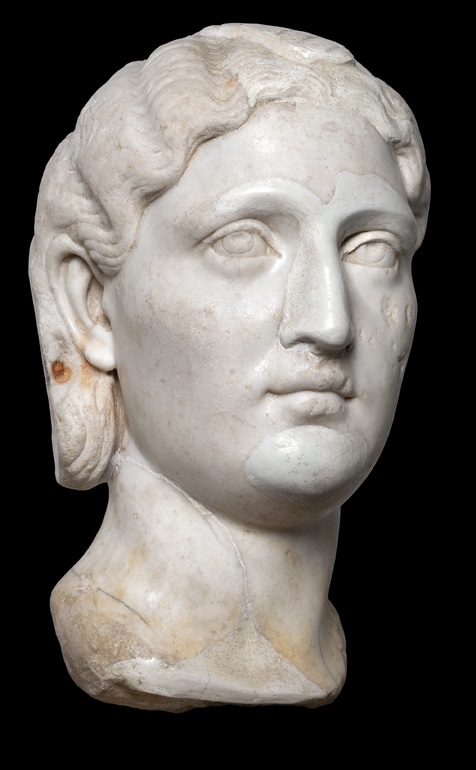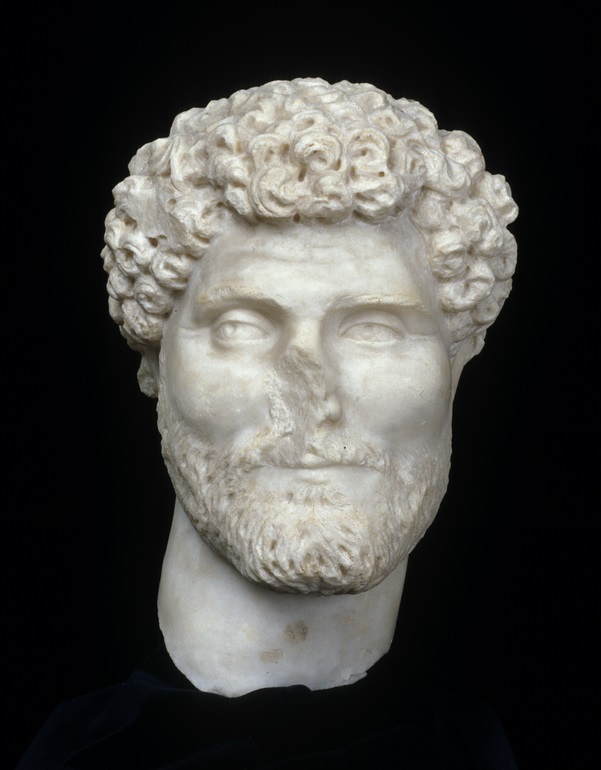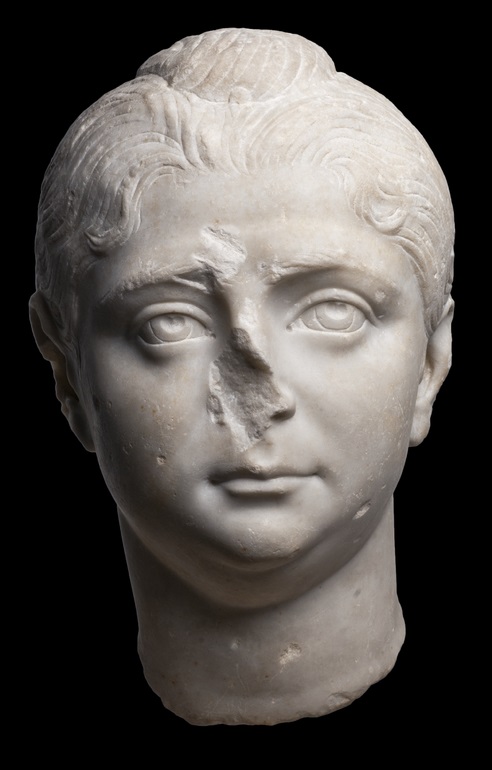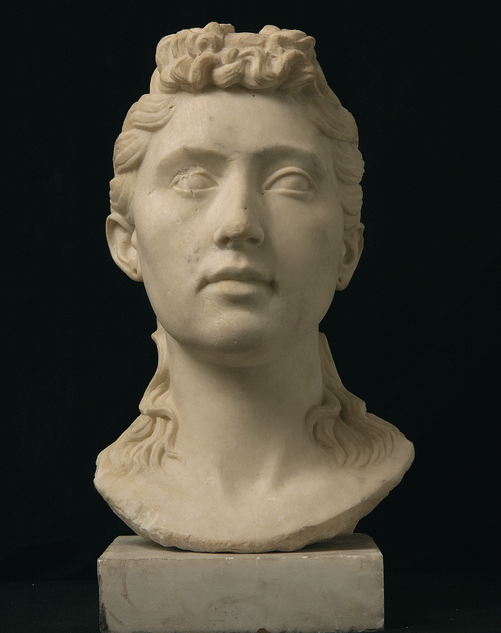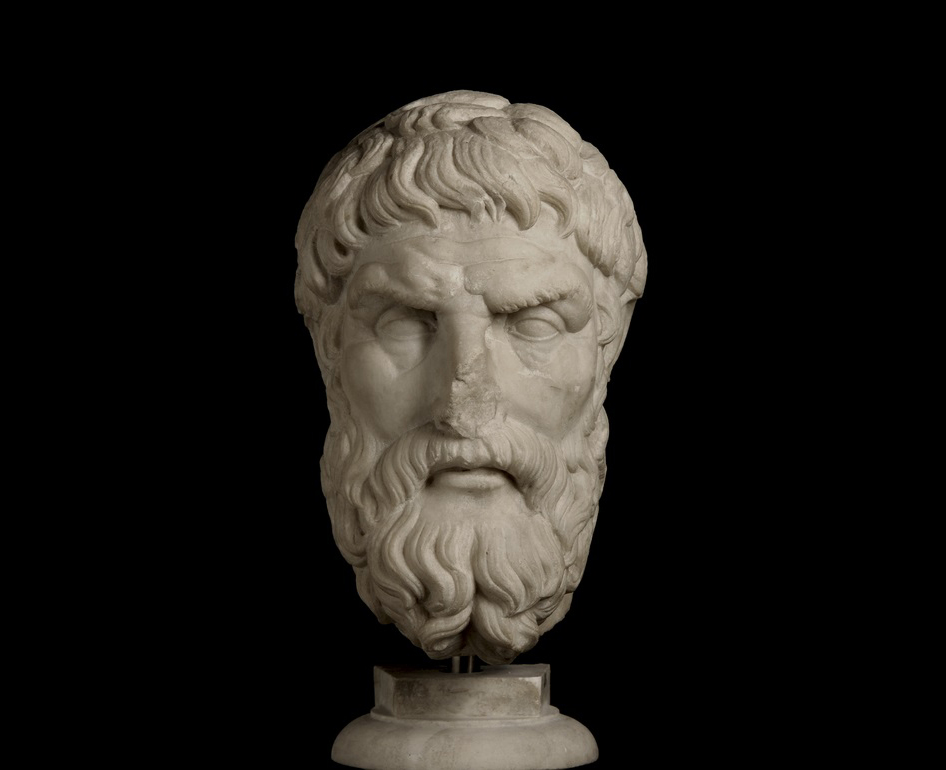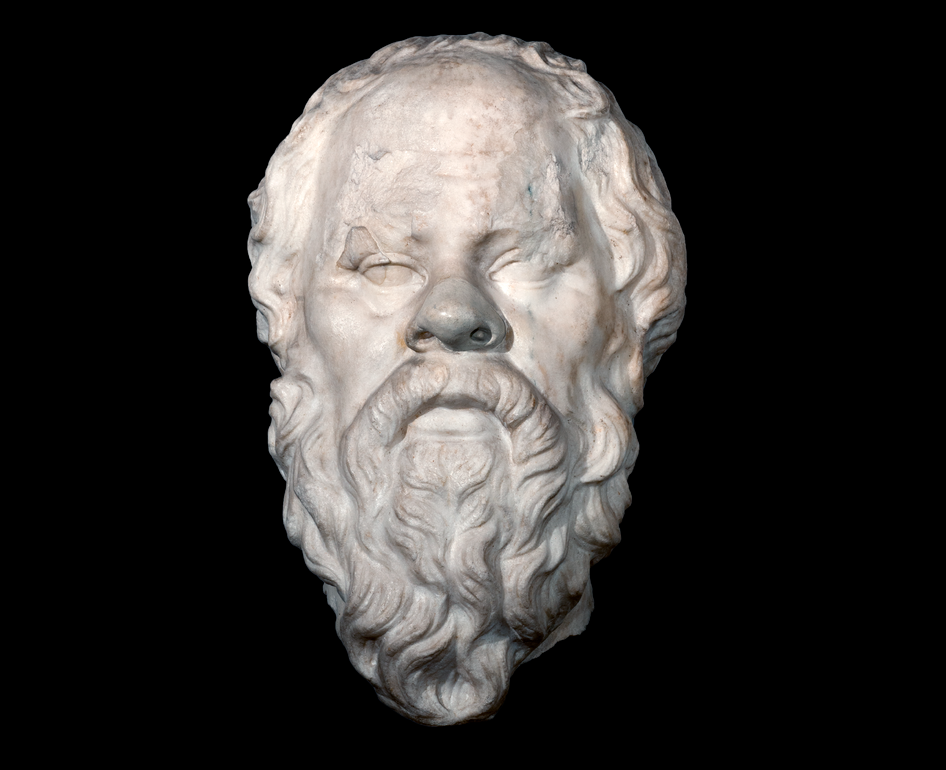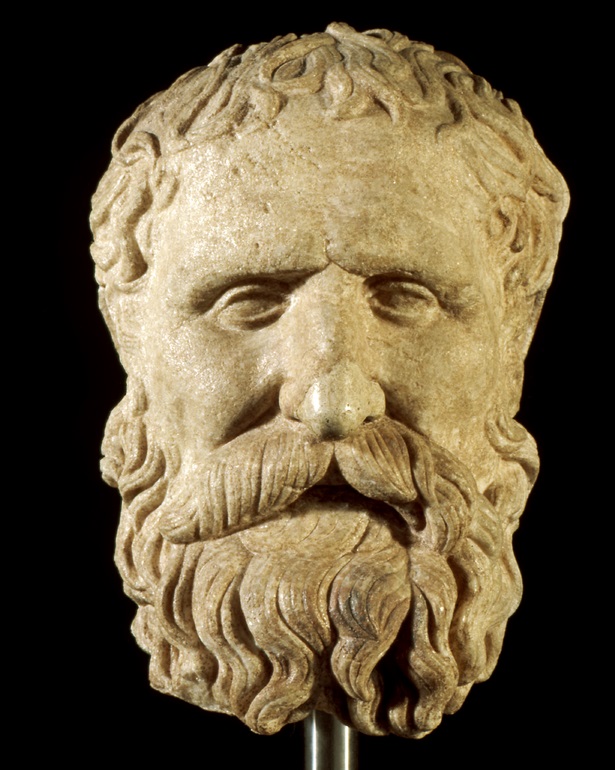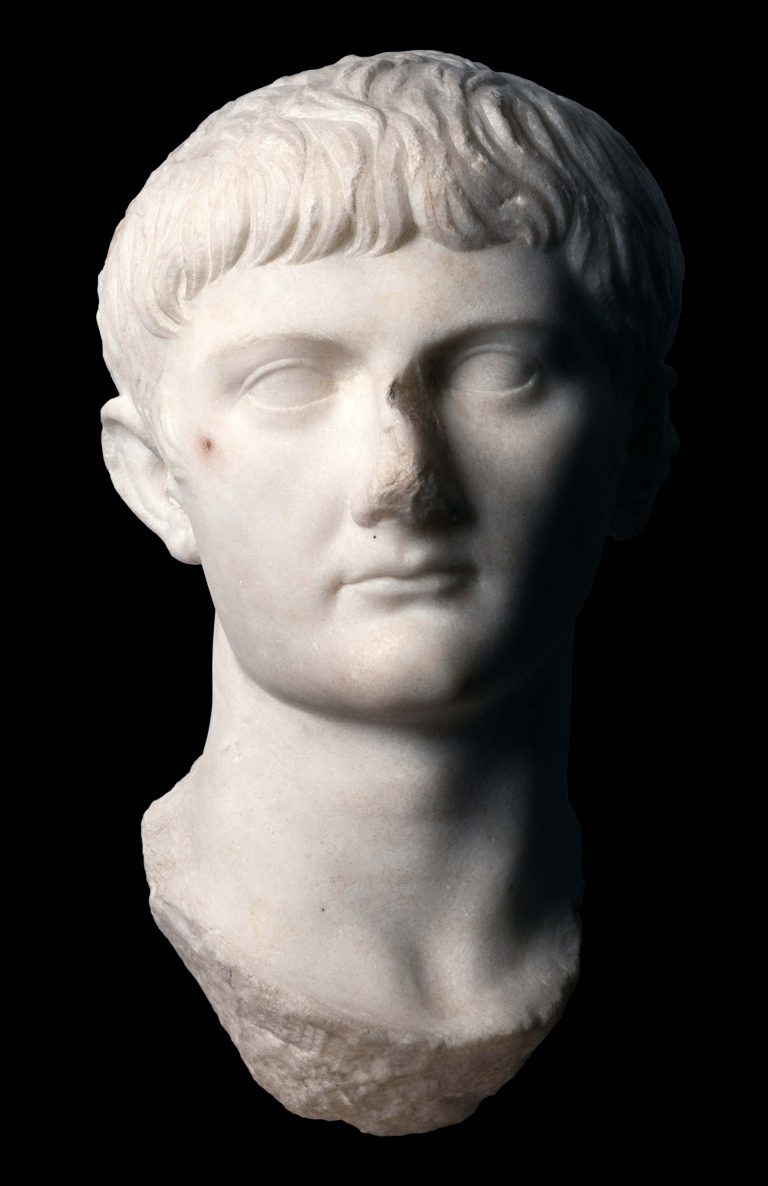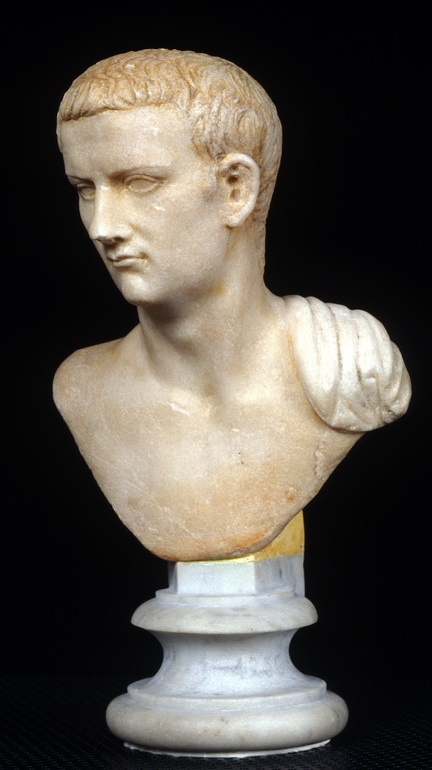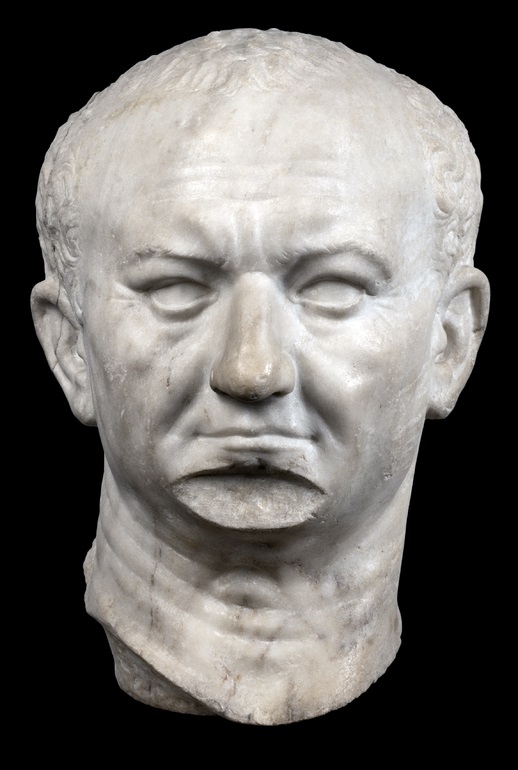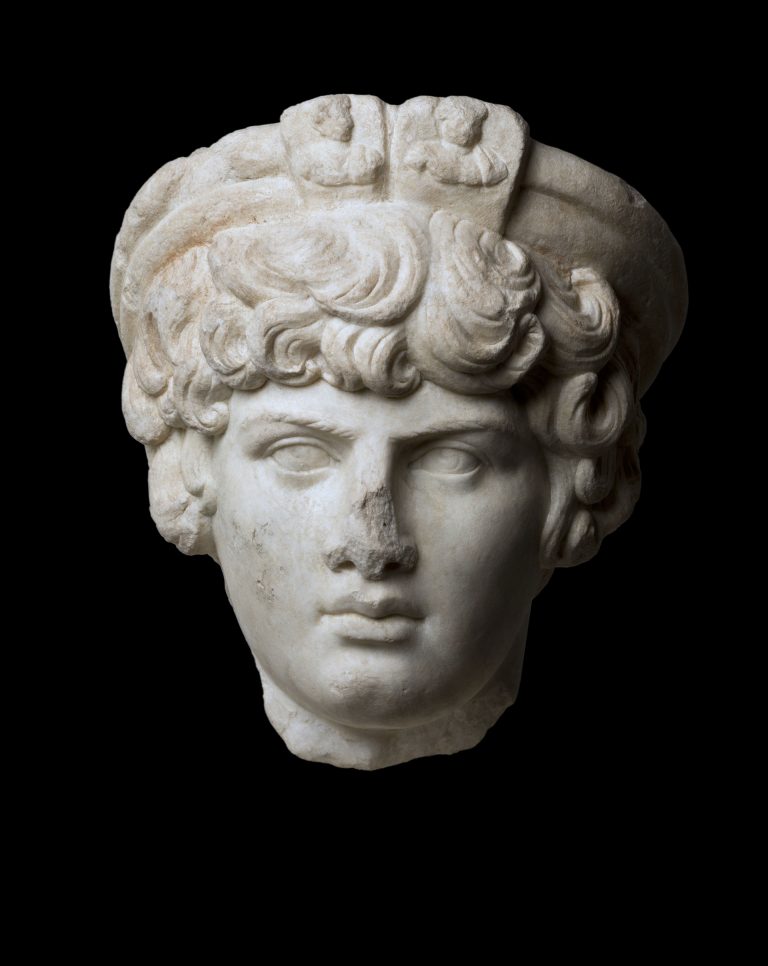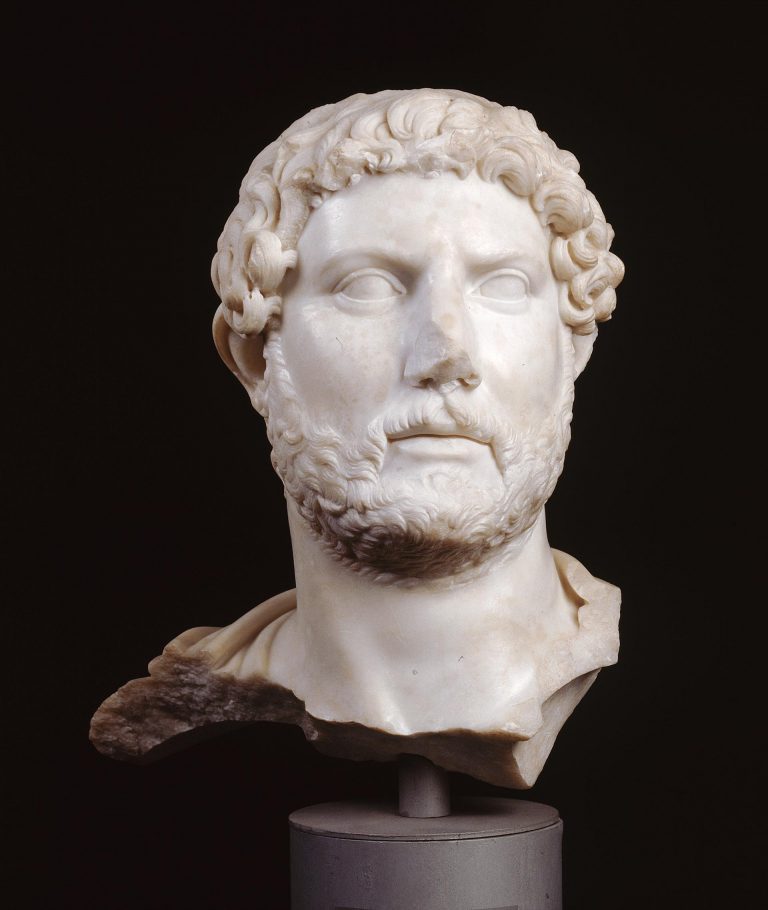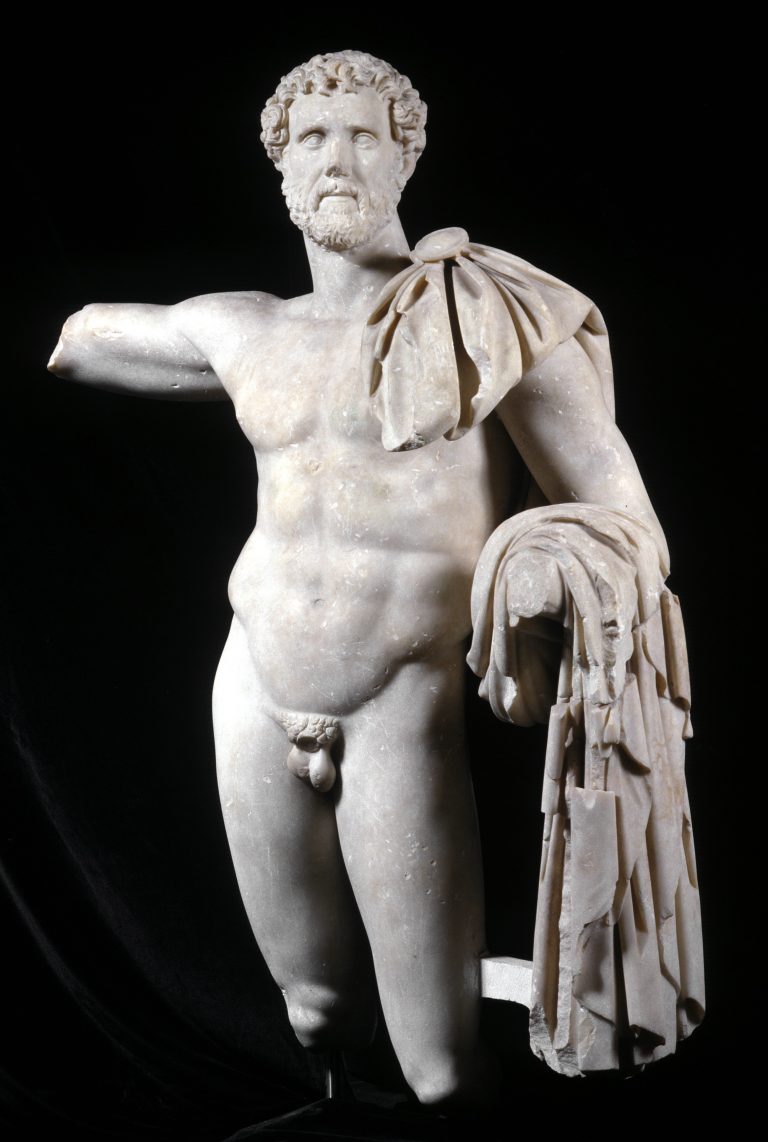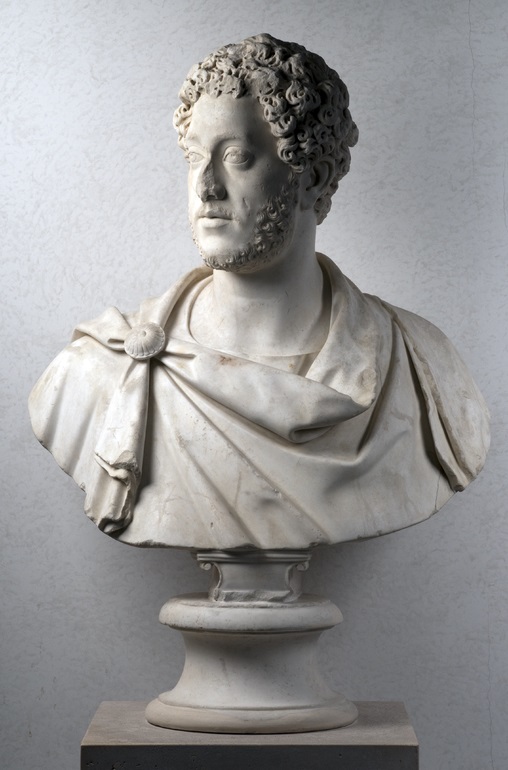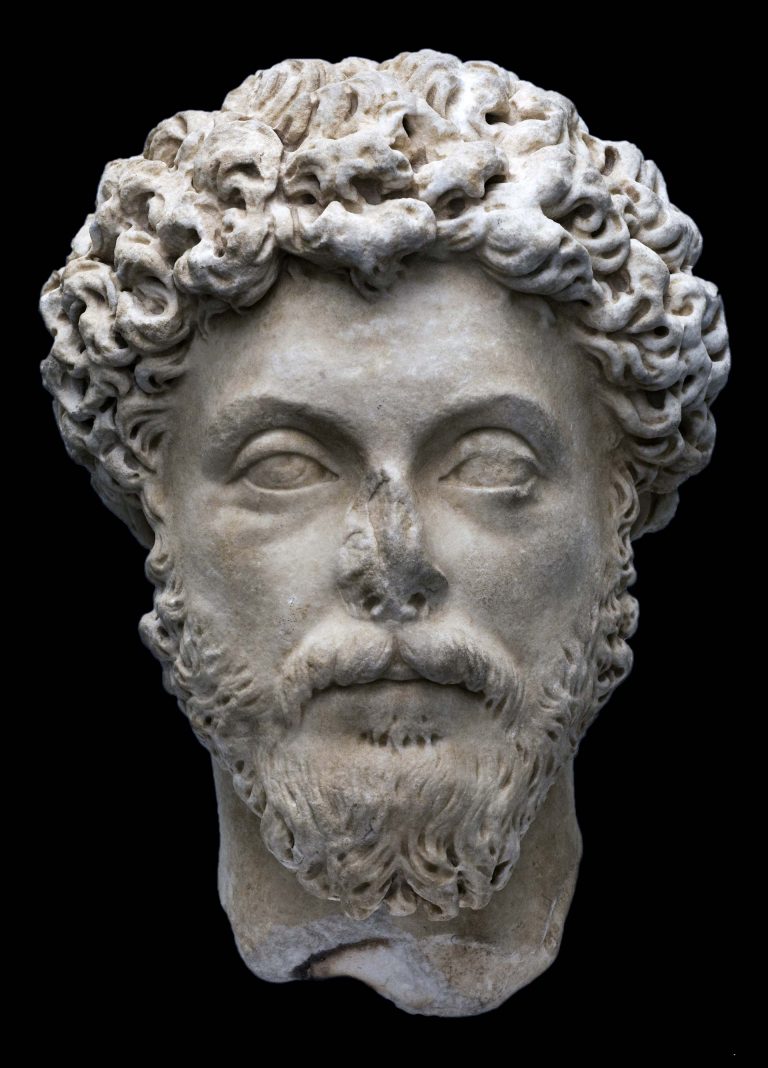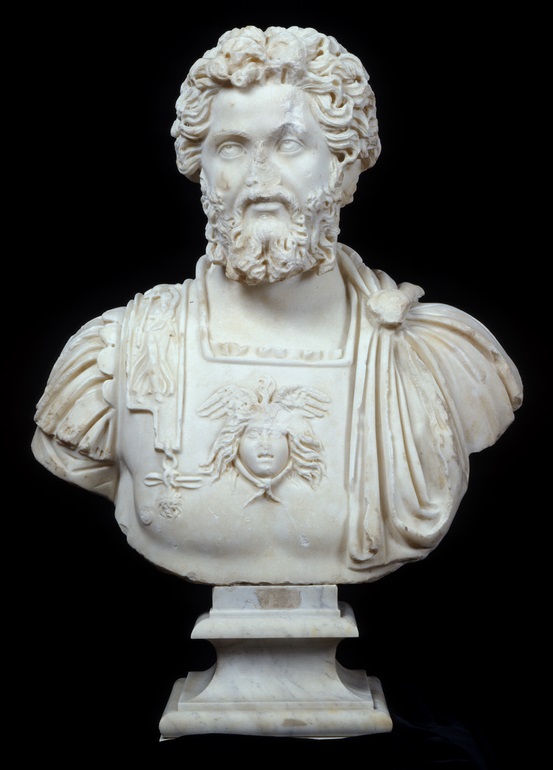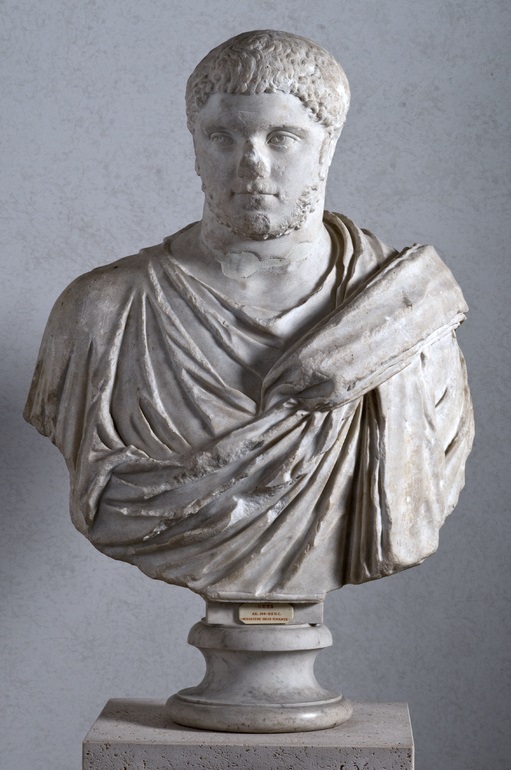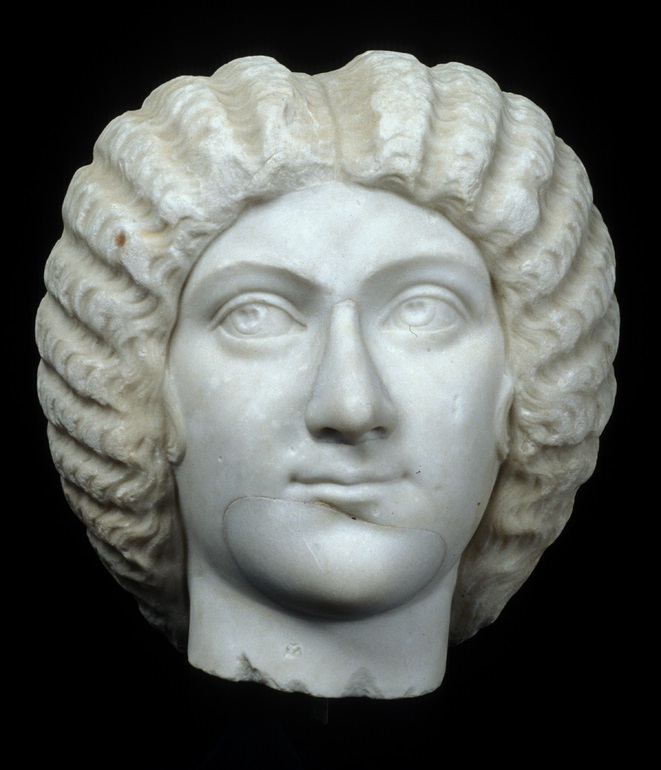The Portrait Gallery
Almost like one of the family galleries in Roman houses that provided a link between the younger members and their ancestors, perpetuating memory and family values, many rooms in the Palazzo Massimo are dedicated to the faces of men and women, often without names, for whom memorials were created in marble. These faces show the various ways that portraits were conceived, from highly idealised examples following the Greek model to Roman faces so realistic they show the origins of the wax funeral masks customarily used on the faces of the dead.
Aristocratic
A gaze into the distance, mouth slightly open, three-quarter face and an inspired expression: this was how many members of the Roman aristocracy were painted, drawing on the Greek models.
Emperors
The birth of the Empire created a new trend in portraiture, that of emperors: the need for an official image, and a celebration of that image, resembling the realistic, private image.

